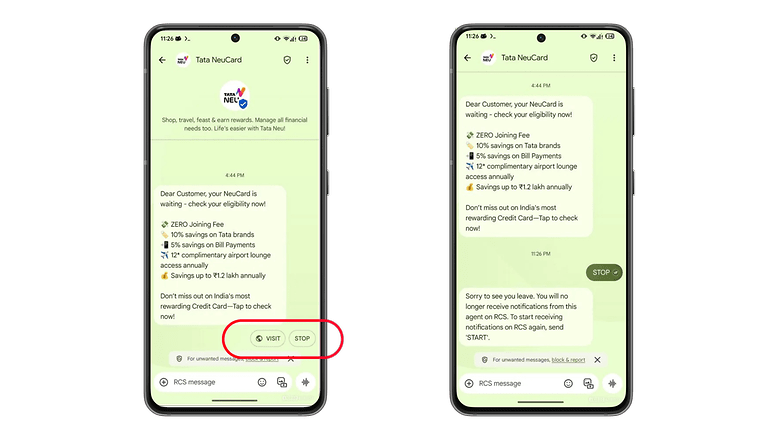Google Messages Gets Serious About RCS Ads with New STOP Button


Read in other languages:
While Google has been busy adding new features and integrating RCS into its Messages app, there are still unresolved issues, notably the influx of spam messages and unwanted ads from business accounts. However, Google appears to be addressing this problem with a new tool aimed at reducing the spam users receive.
Currently, the only way to stop unwanted messages is by manually blocking the sender. This process is set to change with an upcoming Google Messages update.
A New Way to Stop Spam RCS Messages
According to findings from the latest beta version of Google Messages (via Android Authority), Google is testing a new method to help users manage spam without fully blocking the sender.
Similar to WhatsApp's recent feature, users will see a new STOP button displayed alongside the VISIT button for links below messages. Tapping STOP will confirm that “you will no longer receive notifications” from the sender. Notably, this doesn’t block the number entirely but instead mutes all message notifications from it.

Likewise, if users wish to re-enable notifications, they can simply type 'Start' in the chat box and send this to the number.
In addition to the new STOP button, Google still provides the option to block suspicious numbers and report unwanted messages. Blocking will prevent any further messages from reaching your number.
Currently, this feature is limited to RCS business accounts, but support for individual users is expected in the future. However, Google has yet to announce a public release date.
Spam Management Features in Other Apps
Beyond Google Messages, WhatsApp recently introduced an anti-spam feature that allows users to mark messages as “uninteresting” or block promotional content from businesses entirely.
Are you using Google Messages on your Android phone? Do you think this new feature will be a valuable addition? Share your thoughts in the comments below!
Source: Android Authority



















